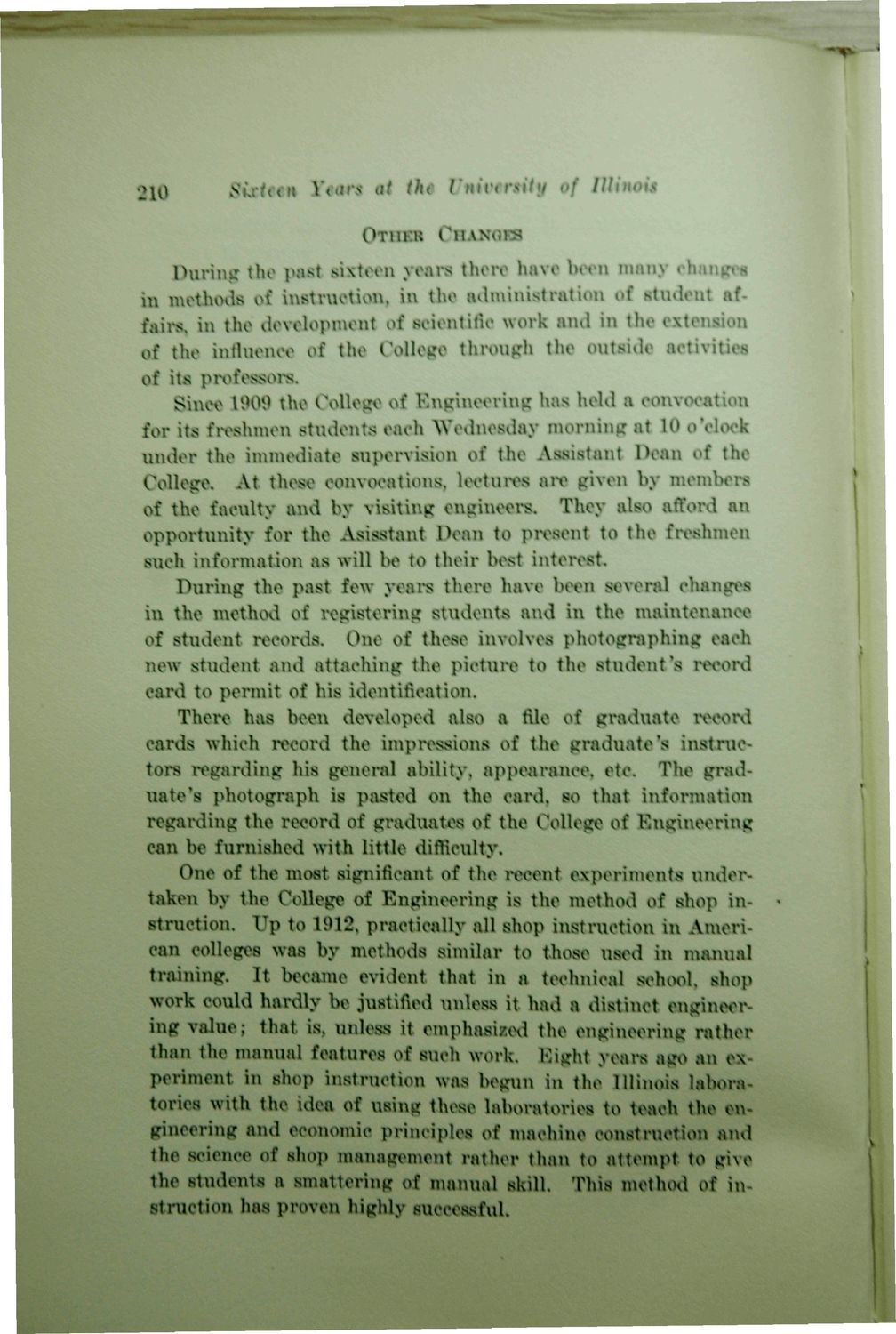| |
| |
Caption: Book - 16 Years (Edmund James)
This is a reduced-resolution page image for fast online browsing.

EXTRACTED TEXT FROM PAGE:
210 Sixteen Years at the I'nivers OTHER CHANGES Illinois During the past sixteen years there have been many changes in methods of instruction, in the administration of student affairs, in the development of scientific work and in the extension of the influence of the College through the outside activities of its professors. Since 1909 the College of Engineering has held a convocation for its freshmen students each Wednesday morning at 10 o'clock under the immediate supervision of the Assistant Dean of the College. At these convocations, lectures are given by members of the faculty and by visiting engineers. They also afford an opportunity for the Asisstant Dean to present to the freshmen such information as will be to their best interest During the past few years there have been several changes in the method of registering students and in the maintenance of student records. One of these involves photographing each new student and attaching the picture to the student's record card to permit of his identificationThere has been developed also a file of graduate record cards which record the impressions of the graduate's instructors regarding his general ability, appearance, etc. The graduate's photograph is pasted on the card, so that information regarding the record of graduates of the College of Engineering can be furnished with little difficulty. One of the most significant of the recent experiments undertaken by the College of Engineering is the method of shop instruction. Up to 1912, practically all shop instruction in American colleges was by methods similar to those used in manual training. It became evident that in a technical school, shop work could hardly be justified unless it had a distinct engineering value; that is, unless it emphasized the engineering rather than the manual features of such work. Eight years ago an experiment in shop instruction was begun in the Illinois laboratories with the idea of using these laboratories to teach the engineering and economic principles of machine construction and the science of shop management rather than to attempt to give the students a smattering of manual skill. This method of instruction has proven highly successful*
| |